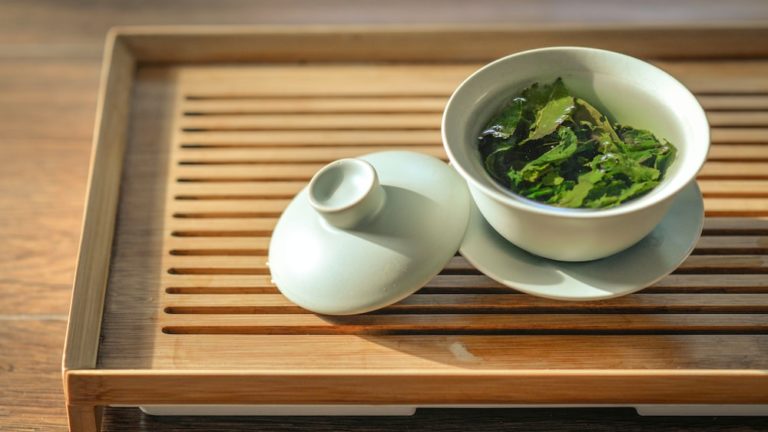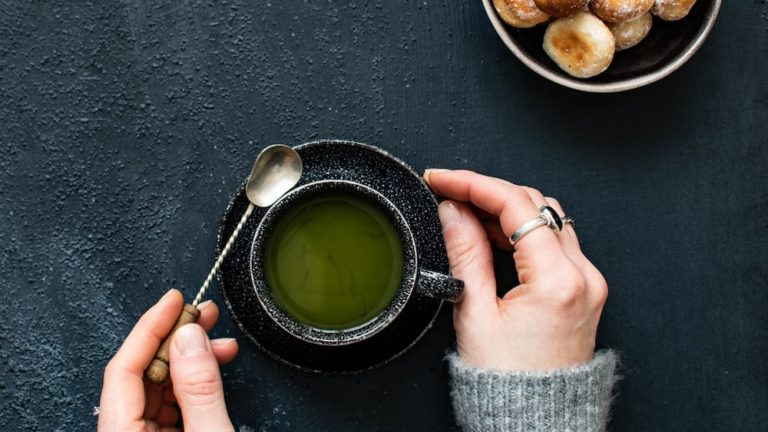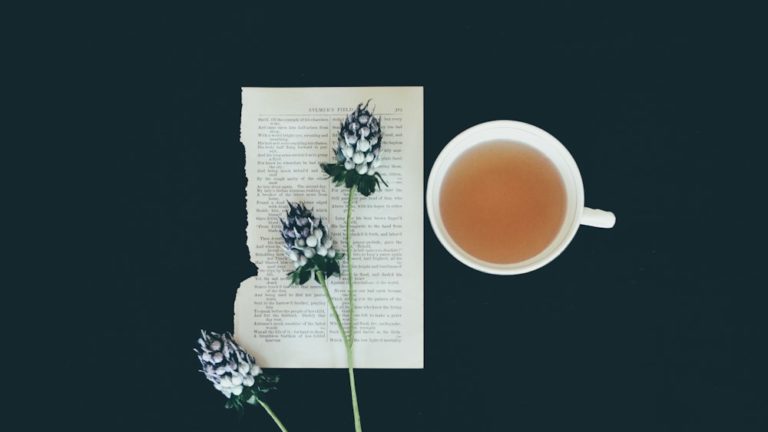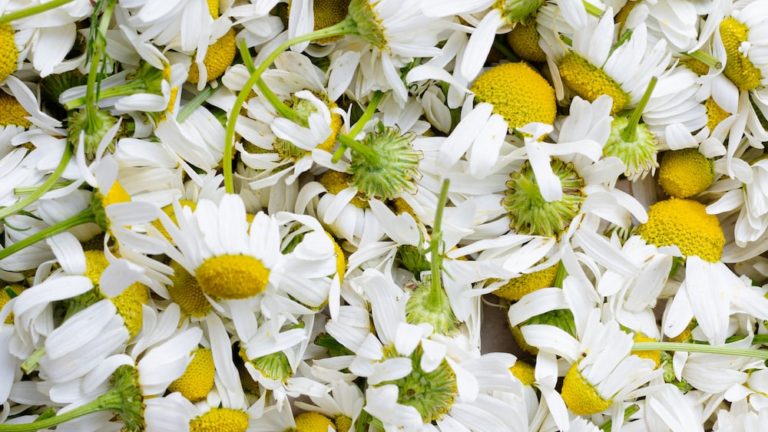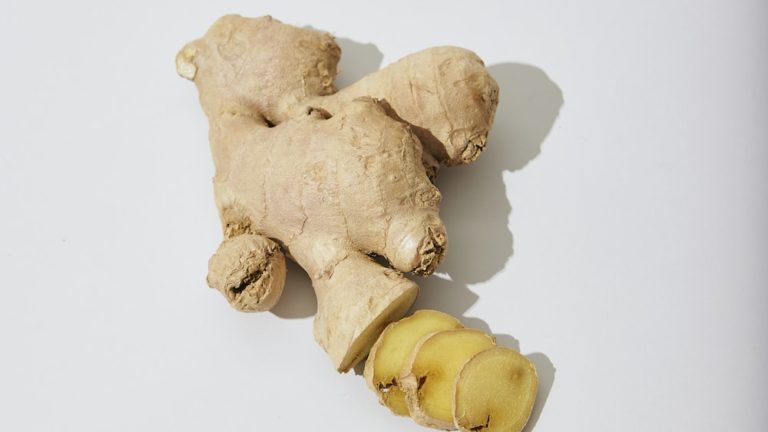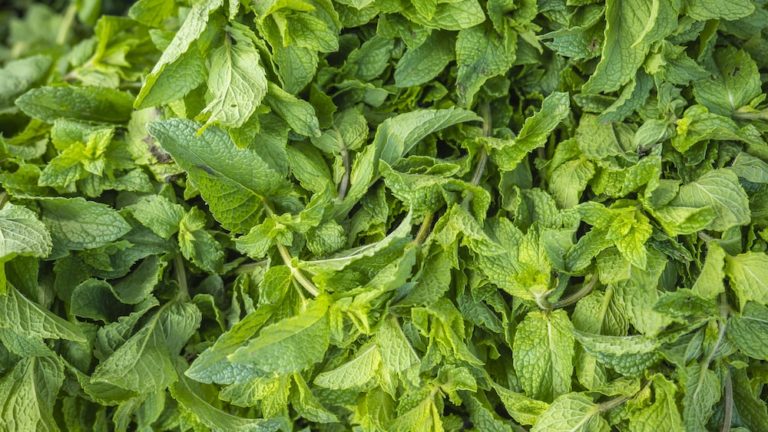Does Iced Tea Have Caffeine? Find Out Now!
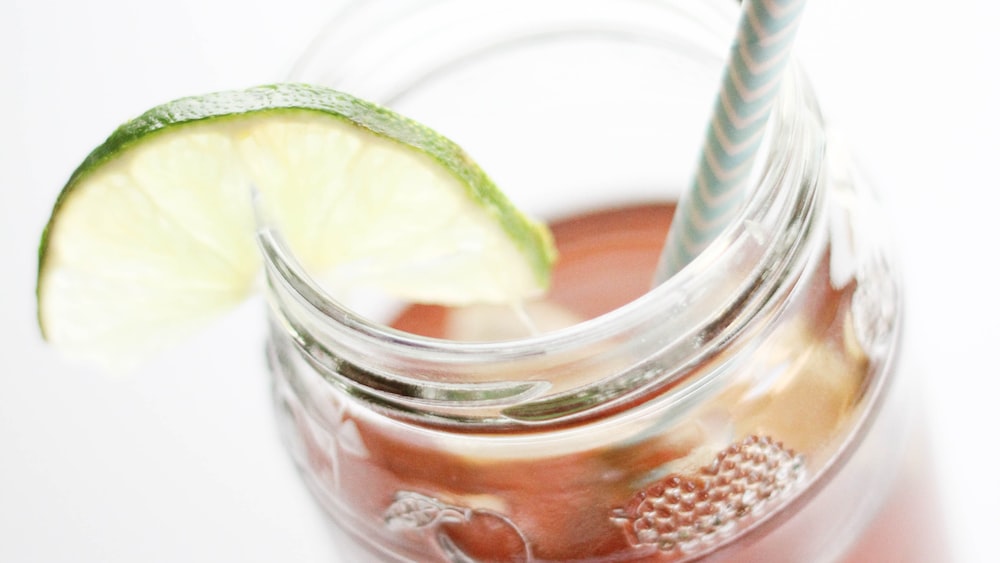
Does Iced Tea Have Caffeine? Find Out Now!
Hello there, tea enthusiasts and wellness champions! Ever caught yourself indulging in the cool, satisfying magic of an iced tea and suddenly thought, does this have caffeine? Well, you’re not the only one. Your refreshing iced tea is quite the mystery, isn’t it? Now tell me this, have you ever tried to sneak into the kitchen in the middle of the night for a snack, only to startled by an overzealous cat and spill your iced tea all over your secret mission?
Today, we’re going on a quest to bust this myth wide open, or should we say ice-crush it? Let’s dive headfirst into the chilled vortex of iced tea and solve this endless enigma. Are you ready to shake the tranquil world of iced tea and uncover its bottled up secrets? Of course, you are.
Understanding Caffeine in Iced Tea
Before we journey into the cool abyss of an iced tea glass, let’s pause for a moment. Let’s understand the enigmatic entity known as caffeine: the good, the bad, and its sly presence in your iced tea.
What is Caffeine?
The moment we hear the word “caffeine,” our minds tend to dart to vivid pictures of espresso drinks, coffee beans, and daily energy boost. But how many of us pause to ponder what caffeine really is? Is it a magical energy wand, or a villain clad in the cloak of wakefulness?
Simply put, caffeine is a natural stimulant, a nudge the brain uses to kick out sleepiness and welcome alertness. Surprisingly, it’s found in over sixty different types of plants, not just your beloved coffee beans. But hold your gasps, dear readers; there is a twist yet to come.
Caffeine is a natural stimulant that helps the brain fight sleepiness and embrace alertness, and it is found in over sixty different types of plants.
How Caffeine is Present in Iced Tea?
Ha! Bet you didn’t see that coming, did you? Yes, even your soothing iced tea may carry traces of caffeine. How? It’s simple – it all comes down to the tea leaves.
Tea leaves, much like the coffee beans you associate with caffeine, naturally contain this stunningly sneaky substance. When you seep these leaves into hot water, the caffeine wades through and finds itself a home in your deliciously refreshing iced tea.
The Amount of Caffeine in Different Types of Iced Tea
Hold onto your ice cubes, folks; the truth about the caffeine in various types of iced tea is about to be spilled. Brace yourselves for the shock or relief (or both!) that follows.
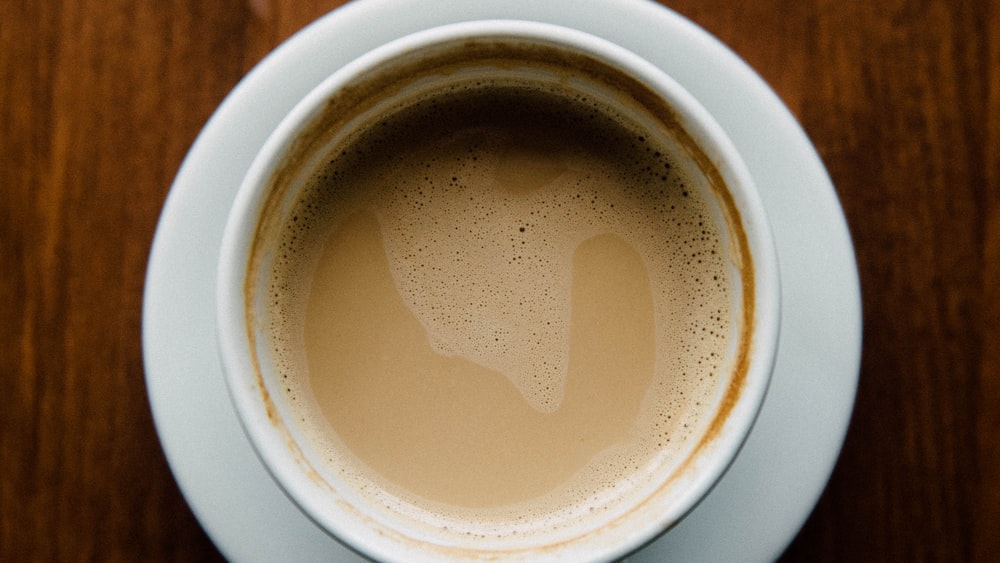
Caffeine in Black Iced Tea
Remember when your mother told you not to judge a book by its cover? Well, that applies to tea too. Despite its dark and possibly intimidating appearance, black iced tea is not the bad guy here. A standard cup of this bold beverage contains around 47 mg of caffeine.
To put it in perspective, sweet tea, one of black tea’s southern cousins, also packs a similar caffeine punch, although it hides it with a distracting sugary grin.
Caffeine in Green Iced Tea
One look at the soft, soothing shade of green iced tea and you may imagine it to be milder than its black counterpart. Sorry, friends, but this time, looks are indeed deceiving. Green tea has on average around 20-45 mg of caffeine.
That’s quite a rollercoaster of a range, isn’t it? It’s almost like how a calm-looking cat can unexpectedly turn into a wild creature when you try to move while it’s sitting on your lap.
Caffeine in Herbal Iced Tea
Now here is where the story gets truly exciting. Herbal iced tea, contrary to its cool and innocent image, earns its reputation as a wolf in sheep’s clothing. You can’t help but feel betrayed, can you? Watch out for herbs like Yerba Mate in your tea. They might just surprise you by making your herbal iced tea do an implausible caffeine somersault.
On the flip side, many herbal teas, such as chamomile and mint, are naturally caffeine-free. All hail the true heroes of caffeine watch!
Caffeine in Flavored Iced Tea
Oh, flavored iced tea, with your sneaky little ways. It’s easy to get lost in your delicious, fruity delights. Yet, beneath that sweet guile lies the deceptive truth about caffeine.
Flavored iced tea’s caffeine content largely hinges on the base tea. If a black or green tea serves as the mother hen, expect a caffeine clutch between 20-45 mg. An herbal base, however, may mean you’re sipping on a caffeine-free delight. So, fellow tea lovers, let’s not judge our flavored teas by their bright colors or exotic tastes. Beware the caffeine ninja!
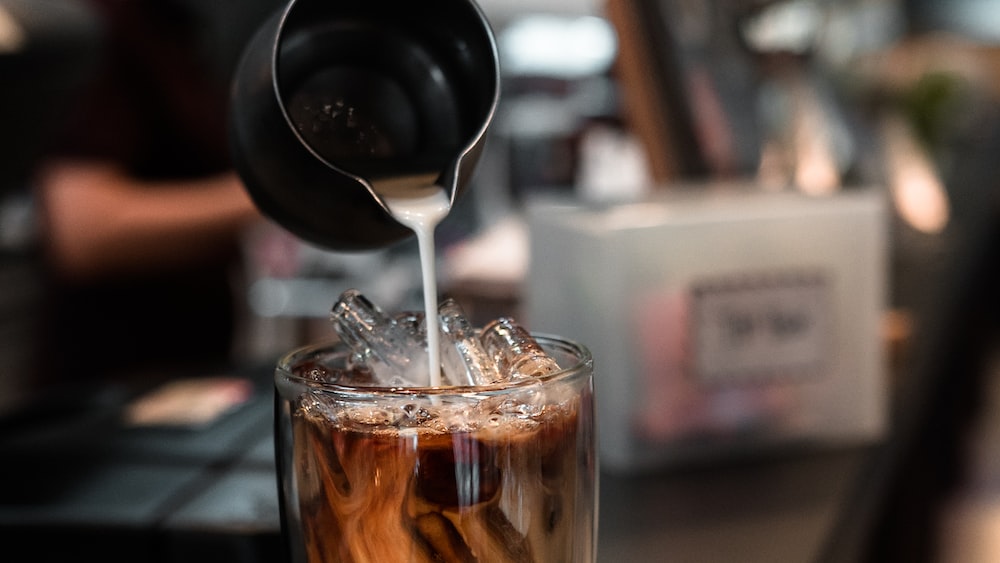
Flavored iced tea can contain varying levels of caffeine, with black or green tea bases having 20-45 mg, while herbal bases are usually caffeine-free.
Comparing Caffeine Levels in Iced Tea and Other Beverages
You might be thinking, “Golly, I’m bored silly by caffeine and just want to sip my soothing iced tea in peace!” But here’s the hot tea on this – understanding the caffeine levels in different drinks can help you moderate your intake to match your lifestyle and health needs. Shall we move on to compare our cool cup of iced tea with other beverages? Buckle up, tea lovers!
Iced Tea vs. Coffee
Here’s the lowdown: a cup of coffee usually packs a more potent caffeine punch than an equivalent serving of iced tea. Proof you ask? I’ve got your back! According to the USDA, an 8-ounce cup of coffee contains about 95mg of caffeine, while a similar amount of iced black tea contains about 47mg.
Now, does that mean we should all scamper off and switch our allegiance to coffee? Well, not so fast! While coffee does give you a more robust caffeine kick, tea offers a smoother release of energy, courtesy of an amino acid called L-theanine. This means that while you’re more likely to get a rapid jolt and potentially more jitters from coffee, tea provides a steadier and more relaxed energy flow. Balance, my friends, isn’t it beautiful?
Iced Tea vs. Soda
When it comes to soda, you might be surprised. Despite their bubbly reputation, most soft drinks have less caffeine than a typically steeped iced black tea. An average 12-ounce can of cola contains about 34mg of caffeine, nearly one-third less than its iced tea counterpart.
But before you cheer for soda, remember – it’s not just about caffeine. Soda also packs a wallop of sugar and often lacks the antioxidants and other health benefits offered by a well-brewed iced tea. So while iced tea might leave you feeling slightly more caffeinated, it’s clearly the healthier sort of quencher. Sorry, soda, it’s not you, it’s just…your sugar.
Iced Tea vs. Energy Drinks
Okay, now we’re stepping into the heavyweight caffeine ring. While iced tea offers a gentle slide into alertness, drinking an energy drink is more like strapping a rocket to your back. An 8-ounce serving of a popular energy drink can contain anywhere from 80 to 150 mg of caffeine, significantly more than most iced teas.
Not afraid of a little caffeine? It’s not just the caffeine in energy drinks that might raise eyebrows. Many of these drinks also contain high levels of sugar and artificial ingredients. However, the story doesn’t end there. A recent study published in the Journal of the American Heart Association observed that energy drinks might cause adverse changes in blood pressure and heart function. In stark contrast, black tea has been associated with a lower risk of heart disease.
Now, I’m not pointing fingers, but what’s in your drink should make you think twice. It might be wise to choose iced tea for its natural blend and many health benefits. Besides, an invigorating iced tea sounds way better than riding a caffeine rocket, no?
The Effects of Caffeine in Iced Tea
As with most things in life, consuming caffeine in iced tea is a balancing act. Too little and you might not feel the kick you need; too much, and you might end up jittery. Let’s delve into the effects of caffeine in tea, shall we?
Health Benefits and Risks
The moderate amount of caffeine found in iced tea can offer numerous health benefits. For starters, caffeine can boost your energy levels, heighten your mood, increase alertness, and even, as several studies suggest, provide a possible protective effect against certain diseases like Parkinson’s and liver disease.
However, note the use of the word ‘moderate’ there, folks. Downing truckloads of iced tea (as wonderful as that might sound) isn’t exactly ideal. High amounts of caffeine, even from our beloved tea, can lead to negative effects, such as nervousness, restlessness, and problems with sleep. Remember, it’s all fun and games until someone can’t fall asleep!
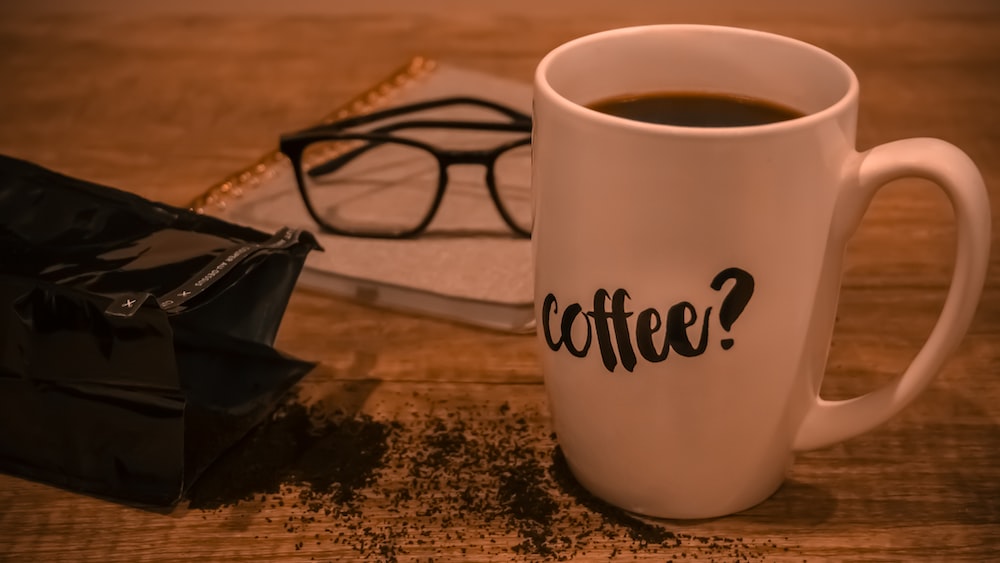
What’s more, depending on your individual sensitivity to caffeine, you might find that even a moderate cuppa affects you more than you’d expect. There’s a lot of personal variation here, so listen to what your body is telling you – it’s the best judge of what you can handle.
Moderate consumption of caffeine in iced tea can have health benefits, but excessive amounts can lead to negative effects like sleep problems and nervousness, so it’s important to listen to your body’s response.
Impact on Sleep and Energy Levels
While a refreshing iced tea can pep you up, have you considered how it impacts your beauty sleep? Sure, caffeine can offer a quick energy boost, but it may also disrupt your slumber if not managed well.
Researchers suggest that caffeine can delay the timing of your body clock and reduce the amount of deep sleep you enjoy. And while you might just shrug off one night of poor sleep, constant disruptions could lead to longer-term issues such as sleep deprivation and all the not-so-fun things that come with it.
That being said, it’s not all storm clouds. The caffeine in tea can also be a helpful pick-me-up after a poor night’s sleep or in overcoming a midafternoon energy slump. The key, dear tea drinkers, is regularity and moderation. A consistent sleep and consumption pattern will help your body to predict and prepare, minimizing the caffeine’s impact!
How to Control Caffeine Intake from Iced Tea
So now that we’ve traveled the circuitous caffeine road, let’s get to the heart of it – how can you control your caffeine intake from drinking iced tea, while still enjoying all its deliciousness?
Choosing Decaffeinated Iced Tea
One of the easiest methods to manage caffeine intake is by opting for decaffeinated iced tea. Decaf teas undergo a process that removes most of the caffeine while preserving their delicious flavors. Presto! All the chill with none of the jitters.
But remember, decaf doesn’t mean caffeine-free – it simply means lower caffeine. A typical cup of decaf tea can still contain around 2 to 5 mg of caffeine. For those super sensitive to caffeine, this might still be too much, while others may view it as the perfect balance. Yet, whether you feel like diving headfirst into a caffeine pool or simply wishing to dip your toes, decaffeinated iced tea could be your perfect chill-out buddy. Enjoy!
Controlling the Brew Time
Ah, the art of brewing – it’s both a science and a slice of sorcery, isn’t it? You see, in the world of iced tea, how long you leave those leaves swimming could dramatically alter your caffeine intake. Boiling teas for longer, say beyond five minutes, could turn your soothing beverage into a caffeine jolt similar to a cup of morning buzz, err… coffee!
But don’t let the process spook you. It’s like tenderly rearing a garden gnome – you just need a bit of patience and a dash of love. Shorter brew times (1 to 3 minutes) can help steep your tea in a more balanced way, keeping caffeine levels moderate and ensuring that you don’t feel like a jittery jackrabbit post-consumption.
Mixing with Non-Caffeinated Beverages
Now, if you’re still twitching your nose at the thought of controlling brew times, here’s an effortless trick: mix your iced tea with non-caffeinated beverages. It’s like sending your iced tea to a cool, caffeine-free summer camp. Plus, who would say no to a bit of excitement, right?
You could dilute your tea with lemonade, making an Arnold Palmer for instance (named after the legendary golfer, not your neighbor’s schnauzer), or blend in herbal, caffeine-less infusions. Just imagine that perfect tea blends making your tastebuds dance and reducing your caffeine intake simultaneously. It’s a win-win!
FAQs
1. Does the brand of iced tea affect the caffeine content?
You bet, the brand of iced tea can certainly sway the caffeine content. Just like how every snowflake is unique, each brand has its own recipe and brewing process. Some brands might use stronger tea leaves or longer brewing times pushing the caffeine content higher. For detailed information, it might be a good idea to check the brand’s website or drop them a line.

2. How does the brewing process affect the caffeine content in iced tea?
Heads up, iced tea lovers! The brewing process does cast a significant influence on caffeine content. Brewing the tea longer or using more tea leaves can up the caffeine buzz in your cuppa. To run a tight ship, aim for a brew time between 1 to 3 minutes for an optimum caffeine levels.
3. Is there a caffeine-free iced tea?
Yes, indeed, there’s a caffeine-free iced tea lurking in the shadows. Sounds like a unicorn, right? It’s made using herbal infusions such as chamomile or peppermint instead of traditional tea leaves. Remember, herbal teas are the rock-n-roll stars of the tea world, underrated but powerful!
4. How does iced tea compare to hot tea in terms of caffeine content?
Hot tea and iced tea can be like star-crossed lovers, distinct yet so alike, especially when talking caffeine. It primarily depends on the type of tea and the brewing time. On average, their caffeine content can be similar, granted you’re using the same amount of tea and brewing times for both.
Conclusion
Gosh, Tea-rrific! We’ve jousted with caffeine, uncovered clandestine brewing secrets, and danced with delightful tea blends. Our journey through the captivating world of iced tea and caffeine proves that, while tea drinking is an art, it’s also an intriguing, jargon-filled maze that’s exciting to wander in and explore. A big shout out to tealovers.com, our ever-reliable source for arcane tea knowledge!
In the end, controlling caffeine in your iced tea can be a ball. Dance with the brew times or experiment with mixology; the tea world is your oyster.
Well, I bid you farewell as you sail into the depths of the tea ocean. Remember, there’s always a beacon at the tea-rimmed horizon, a lighthouse guiding you towards your coveted brew. Until we meet again, tea adventurers, this is Zoe signing off…

